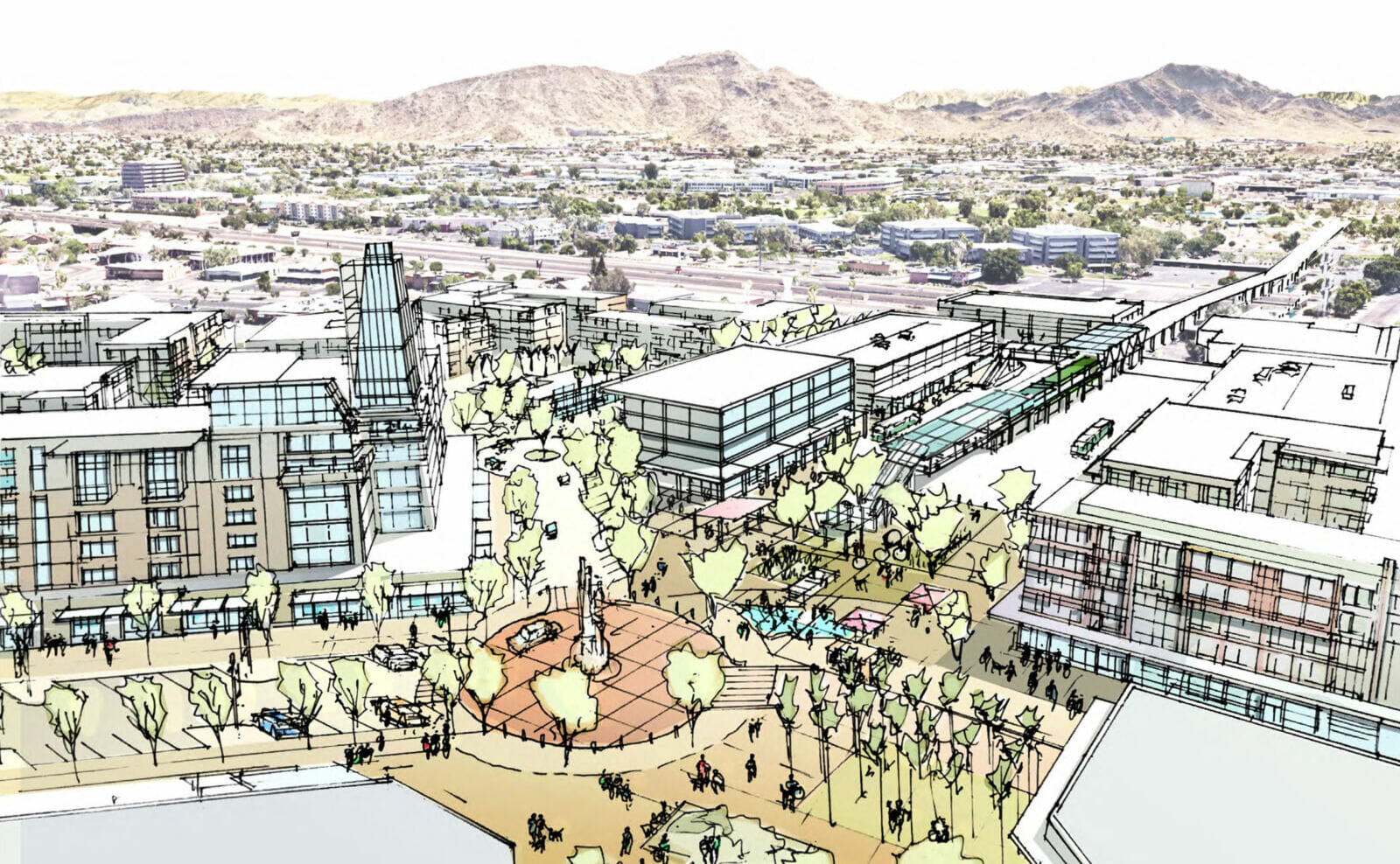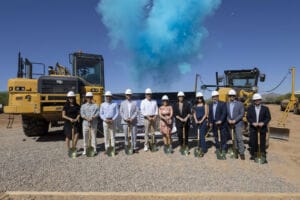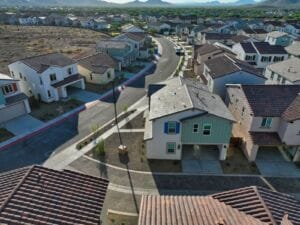On Sept. 30, 1973, the Arizona Republic hailed the opening of Metrocenter Mall’s first stores, calling it “Arizona’s most daring retail development to date.” In the decades following, Metrocenter became a cultural touchstone for a generation of young Phoenicians, who mingled while cruising the loop around the mall or skating the indoor ice rink. Some lucky mallgoers even got to be extras in 1989’s “Bill and Ted’s Excellent Adventure.”
After 47 years of operation, Metrocenter Mall shut its doors for the final time on June 30, 2020, amid a pandemic and after efforts to revitalize the mall fell short. But, like the namesake of the city in which it resides, new life is coming to this Phoenix landmark.
Concord Wilshire Capital (CWC) and TLG Investment Partners (TLGIP) announced that they have partnered with Hines to acquire Metrocenter Mall and plan to invest approximately $750 million to redevelop the property into a residential and mixed-use community.
“It’s a remarkable opportunity to reimagine what was an iconic regional mall at a superior location at the time it was built but has become even more attractive as a development site with the light rail set to terminate there in 2024,” says Steve Betts, senior advisor to CWC and Hines. “With growth continuing to move to the northwest and businesses such as the Taiwanese Semiconductor Manufacturing Company bringing 8,000 jobs just 15 minutes north on the I-17, Metrocenter is now in the center of our metro.”

The Deal
The metamorphosis of a declining mall property into a revitalized community has taken a long, winding path. In 2016, the previous owner of the mall, Carlyle Development Group, did the crucial work to make this community possible — it led a rezoning effort for Metrocenter.
Carlyle obtained approval from the Phoenix City Council for a planned unit development (PUD) designation, which allows the applicant “to propose the uses, development standards and design guidelines for a site, and by doing so, enter into a collaborative review process,” according to the City of Phoenix’s website.
In a press release announcing Metrocenter’s redevelopment, Abdi Mahamedi, president and CEO of Carlyle Development Group, says, “We worked very hard to obtain approval for a flexible PUD that allows a high density residential and mix-use development in the Metro Phoenix market.”
Still, the idea that Metrocenter could be transformed into a residential village met resistance from skeptics. Christine Mackay, community and economic development director for the City of Phoenix, told attendees of Valley Partnership’s panel discussion on Jan. 28, 2022, that she pitched the idea of a Metrocenter redevelopment to 25 different developers before a deal was inked.
“There were about a dozen developers that were adamant that Metrocenter could never be redeveloped into an urban village, that it had to be industrial or it was going to fall even further into disrepair,” Mackay recalls.
Betts adds that when word got out that CWC acquired Metrocenter, the company received several inquiries from folks who wanted to put industrial product on the property. “They said, ‘Absolutely not, that’s not the vision for that site.’ Surprisingly, a number of people came back saying, ‘Well, we can fit industrial into your residential urban village,’ which we again said, ‘Industrial is not going to be a compatible use to the European village feel that we want.’”
To realize the aspiration of creating a walkable urban environment, Betts notes that having the full 68 acres of the mall property was crucial. “All the Humpty Dumpty pieces are put back together again, and I have to give credit to Concord Wilshire for not only acquiring the core asset, but also the other anchors.”
With all that land to work with, the plan is to build 2,600 dwelling units surrounding a town center with 100,000 square feet of service-oriented retail. Future residents will enjoy pet-friendly parks, an amphitheater, pedestrian and bicycle pathways along with other entertainment options. Existing amenities include the 150,000-square-foot Super Walmart, Harkins Theatre, Castles N’ Coasters amusement park, a public library, restaurants and the nearby Rose Mofford Park.
Even with the wealth of nearby activities, Chris Anderson, senior managing director for Hines, explains that the community will be reasonably priced.
“We like to call it attainable housing, so the nurse, first responder or service employee can live here just like the business owner or executive,” he says. “We will have several price points and amenities that a variety of people can enjoy.”
Light Rail
In the past few months, motorists traveling I-17 have seen something novel — a metal track crossing the freeway from east to west erected over the lanes of traffic south of Peoria Avenue. This isn’t for pedestrians or a typical vehicle overpass. It is the groundwork for where the light rail will travel over the interstate and terminate in front of Metrocenter as part of the $401 million Northwest Light Rail Extension Phase II project from the City of Phoenix.
This was not always the plan, however. The light rail station was originally designed to run parallel with the I-17 east of Metro Parkway, but forward-thinking changed that.
“It was the vision of former Councilwoman Thelda Williams,” Mackay recalls. “She was the one who went to the city manager and said, ‘I want that to end at my mall.’ She envisioned what was going to happen for the next iteration of that mall.”
For CWC, the light rail was crucial to what Betts describes as a transit-oriented development. “It’s an opportunity to construct 2,600 units around a transit station that has access to the airport, ASU, and jobs in downtown and midtown,” he says. “People can use the light rail as their primary source of transportation and have a car for other uses. They could theoretically not have a car at all.”
Even though the community has an emphasis on walkability, there will be approximately 4,100 parking spaces programmed in up to seven garage decks for use by residents, visitors and light rail park-and-ride users.
While nothing has been confirmed, Betts says that there are ongoing discussions as to how to remember the legacy of Metrocenter, whether that be a small museum or by incorporating some of the mall’s architectural elements in the redevelopment. As far as a homage to “Bill and Ted’s Excellent Adventure,” Betts concludes, “I hope that would be part of the historical connection.”




